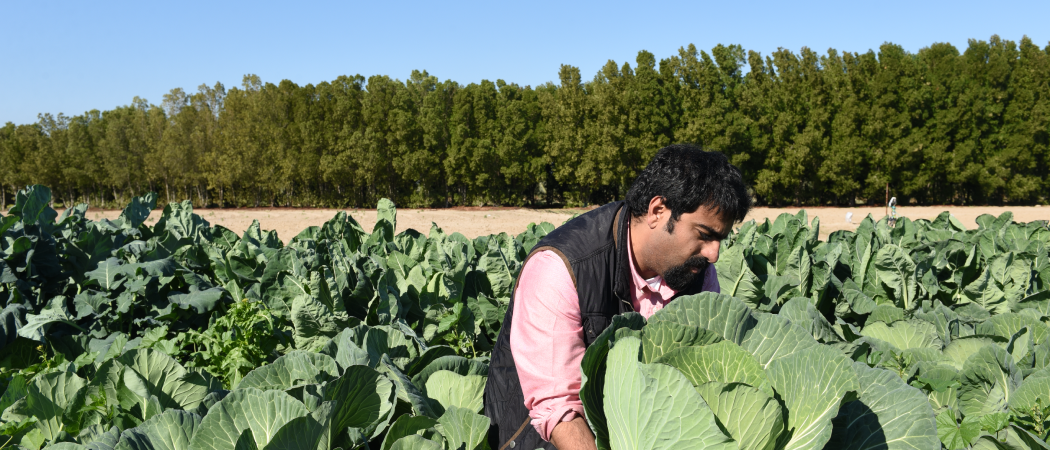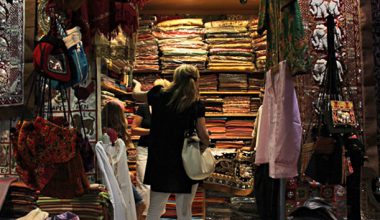Back in January 2016, Ali AbouKhamseen was featured on his farm in issue 19, ‘Beginnings.’ He passionately spoke about his achievements at Kenaneya farms and ambitions to convert it into being organic. He also divulged a new addition to the farm; livestock, plus, the challenges he expects to face in the future. Here is some added information from the interview:

You mentioned you have chickens and have some livestock?
Chickens yes. I had livestock, but at the moment I don’t. I sold them all because they eat everything and that’s where we make most of our cash, so now I'm just fixing the shelter to make it more humane and safe for animals. Right now I don't have any animals. It’s a work in progress. Now I’m researching on how to start breeding animals more safely and to improve their welfare.
Are your chickens also going to be certified organic?
Yeah, hopefully so. I have done some research on the topic as well, and I discovered that there are sets of guidelines on how to do so. But what most people don’t know is that certifying eggs organically is easier than certifying chicken for eating.
How does that differ from certifying the crops?
After a year of research, this is what I humbly gathered; certifying crops is highly associated with certifying the land it grows on while certifying chicken and eggs have less attachment to the land. People who certify the crop survey the land to make sure it undergoes organic practices, while certifying chickens have to do more with what the chickens are eating, organic feed, and being medicated organically. I personally haven’t seen a requirement that free-range chickens must roam freely on certified organic land.

And what about the feed for the chickens?
That's the biggest challenge. There are three levels to it, first of all we’re trying to make sure there are no chemicals, the second issue is that we have to make sure they're not eating GMO’s which is very common between soy and corn because soy and corn are the most GMO foods on the planet, the third level is that after we make sure that these two are not apparent we have to make sure we have organic feed and on top of that, make sure these are the specs, so making sure it’s on a commercial level, and then comes health, nutrition, preventatives, so it is a challenge and I'm not there yet, I know I'm not there yet.
How long do you think it will be until we see organic chickens in supermarkets here?In supermarkets, at least in the imported forms there are some companies that are working on frozen varieties, so I know of at least two companies that are in talks with Turkish companies and German companies to import chicken, and chicken regulations in Kuwait make it one of the toughest proteins to import, because there's a lot of regulations on it, so if you go to the supermarket you cannot see fresh chickens from outside of Kuwait. Just recently we saw chilled chickens in the supermarket from Saudi Arabia, and I don't know how that got in because that's a different regulation spectrum. As imported frozen, I think within this year, within at least late 2016 or early 2017, you will see it. It was there, but the demand was so high they couldn't keep up with the supply and I think Natureland is working on it, they made an announcement, they were talking to a number of companies, so I know they are trying I don't know whether they are finding the right product from Kuwait or not.
Do you have in your mind when you would like to see your own chickens sold commercially?Yes, I do, but I know it’s a challenge for a number of reasons. Firstly, organic chicken cost more than commodity chicken. The chicken that you are eating is not raised on a farm; it was most likely raised in a closed bunker where it has not even seen natural light throughout its whole lifespan. Where everything the chicken ate is costly and measured, their average life span is between 35-45 days. On the other hand, organic chicken must see daylight, must feed on non-GMO, and they are only slaughtered after 81 days. The longer life span they have is the main reason you see organic chicken being larger than commodity chicken. Secondly, organic chicken is not the same as commodity chicken. Many people in Kuwait do not know how to cook it and some of them are trained chefs. Thirdly and lastly, organic chickens are highly seasonal and aren’t available year round.








